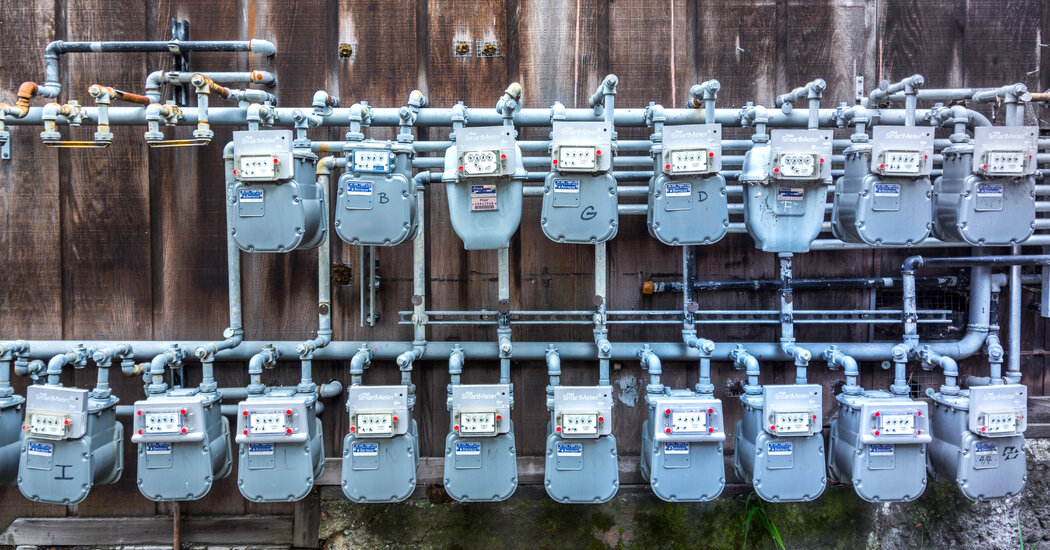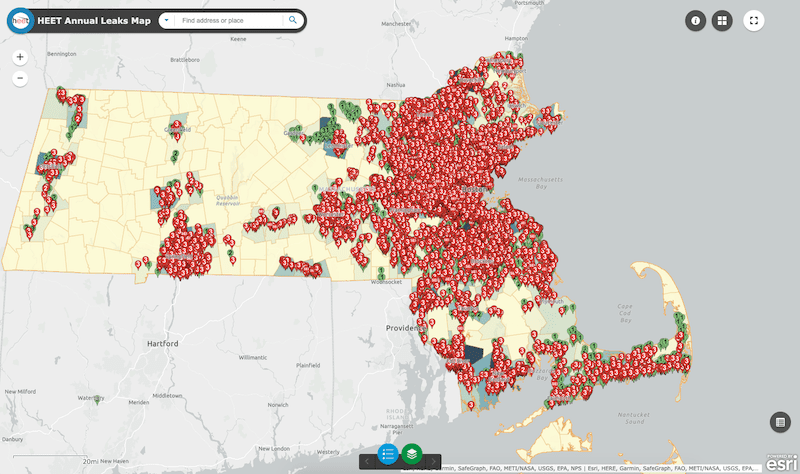
Berkeley Will Repeal Its Landmark Ban on Natural Gas in New Homes
The decision, which came after a legal challenge, throws into question the fate of dozens of similar measures across the United States.


I’m wondering why they didn’t enact a stair stepping tax on NG. Anything based on EPA rules that is a bit of a reach doesn’t stand much of a chance at the Supreme Court. I don’t see issues with banning residential hookups. When it comes to commercial zones I do think NG probably has advantages that the users would pay the tax to keep using.
With residential natural gas, there is a large amount of leakage. And methane has a very high global warming potential compared to CO2. So residential NG has a larger (on a 50 year timeframe) global warming effect than burning oil, wood or running a heat pump.Why would you want to ban residential hookups for natural gas? What’s the difference between banning wood and natural gas? Wood has more carbon, it’d make sense to kill that first. On top of that, we’re an easier target since there are fewer of us to loudly whine about it.
Isn’t it easier to focus on decreasing energy usage in houses so whatever the fuel that is used the quantity goes down? Any time a roof is out on, insulation needs to be added to the roof. Any time a house is resided, the siding company must certify that there is at least R7 of foam board/insulation outside the framing to stop thermal bridging. I bet we’d have to look hard to find new single Payne windows.
Relatively small things can make huge differences in energy usage.
I agree all buildings should be build to higher standards. Like R60-80 attic with 2x6 walls and blower door test mandatory for certificate of occupancy. Good luck getting that through. Not sure what the CA building code says currently but here just saying you built it tight is good enough and the inspector might not even really care how much insulation is there.But if you make the structure better, it doesn’t matter what form the energy comes in, you use less of it. Conservation is a good thing. It’ll help cool a building too. You brought up respiratory issues, allowing a building to be warmer for the same fuel use, or use less of it to keep it the same temperature, will help with these things too.
Changing fuel source still requires the same number of BTUs every year to heat and cool. Fixing the structure decreases the number used for the remaining life of the structure.
With residential natural gas, there is a large amount of leakage. And methane has a very high global warming potential compared to CO2. So residential NG has a larger (on a 50 year timeframe) global warming effect than burning oil, wood or running a heat pump.
Burning NG in a power plant (to say run a heat pump) is much better, bc large ng leaks are detected and sealed, and you only have leaks in NG production and distribution.
But the residential, last mile network, and in peoples' houses and appliances... huge leak fraction.
Also, studies show that burning NG is bad for residents health, like asthma and increased respiratory issues.
But it is, ofc, entrenched.
FYI propane is much better in terms of global warming potential, usually assumed to be zero.
The state of Maine has had bills introduced in the legislature to ban extension of natural gas. https://energynews.us/2024/03/14/maine-replaces-bill-to-halt-natural-gas-expansions-with-plan-to-study-industrys-future-role/#:~:text=Posted inNortheast-,Maine replaces bill to halt natural gas expansions with plan,alignment with Maine's climate goals.
Unvented gas appliances are on their way out now that the long term indoor air impact of them on health is known, the link to childhood asthma seems to be getting out there. https://www.ncbi.nlm.nih.gov/pmc/articles/PMC9819315/ The natural gas industry has known it for decades but they elected to go the big tobacco route. Vented heating units still make a lot of sense where electric power is expensive and natural gas is cheap despite the higher efficiency of heat pump type electric units. Various states and the federal government are targeting natural gas water heaters to be phased out and the new IRA act has very generous incentives for electric heat pump hot water heaters.
Pretty poor justification, natural gas distribution network methane leaks are equivalent to less than 0.25% of the US Methane Emissions from cattle, or 1% if you can believe EDFs numbers.
Burning natural gas in a 40% efficient peaker power plant to operate a COP of 2.5 heat pump yields the exact same CO2 output as a 95% Eff gas furnace would. So why would you force people to switch for zero benefit? Particularly when in almost every case it is more expensive to heat with electric than gas?
Sure NOx from burning natural gas is harmful, pretty easy to fix that with a simple change to the gas code preventing new vent-less appliance installs, without an outright ban on natural gas.
Sure makes a lot of sense doesn't it? A state filled with high CO2 output oil burners in homes, but lets ban the least carbon intensive fossil fuel and keep burning oil instead.
Doesn't make a whole lot of sense to put a heat pump water heater in a cool climate, as the primary heating system is the true source for the energy that water tank is using. Unless your running 2 systems that switch how the water is heated depending upon the season.

 www.mma.org
www.mma.org
National averages 40 years old. Even up north how many hour a year are you below say 30 degrees? I don’t know the answer. The grid will look completely diff in 10 years the gas furnace will last 20. Prohibiting any gas on new resi construction is a no brainer.I’ll throw in there that what works well South if the Mason Dixon line might not work as well in Wisconsin and other places up North.
That’s not saying we shouldn’t try to make things better.
I remember my house in Houston had roughly the same utility bill all year long. I was either paying for AC or heat. It was built in ‘99 with single pane windows. I moved out of there in 04, but if I’d stayed, I probably would have really blown in additional insulation in the attic! Obviously, upgrading windows would have made a big difference too.
How many houses like that exist around the country?
Is that resistance heat or a heat pump?Average winter high in Albany, NY is 30. Low is 15.
Per btu, Electricity is 7x more expensive than NG when I calculated it last month.
What btu does it throw ? I had to shop hard to find a burner that threw enough heat for my wife’s wok. I never looked at induction burners. They weren’t as popular when I bought my stove.I have a single burner induction burner on my electric range on top of two disconnected burners. I do 95% of my cooking on it. Except for switching cookware, it is the way to go. I am tempted to remove the two old Calrods and drop in a two burner induction version. I got a few folks to try the single burner units and they have also made the swap. You can get them for less than $100. They heat up quick compared to a Calrod type element.
I went down the induction wok burner rabbit hole a couple years ago. Cooking for two 120v is ok. I needed a 240v. And that means expensive restaurant equipment. This one has good reviewsWhat btu does it throw ? I had to shop hard to find a burner that threw enough heat for my wife’s wok. I never looked at induction burners. They weren’t as popular when I bought my stove.
We use essential cookies to make this site work, and optional cookies to enhance your experience.

